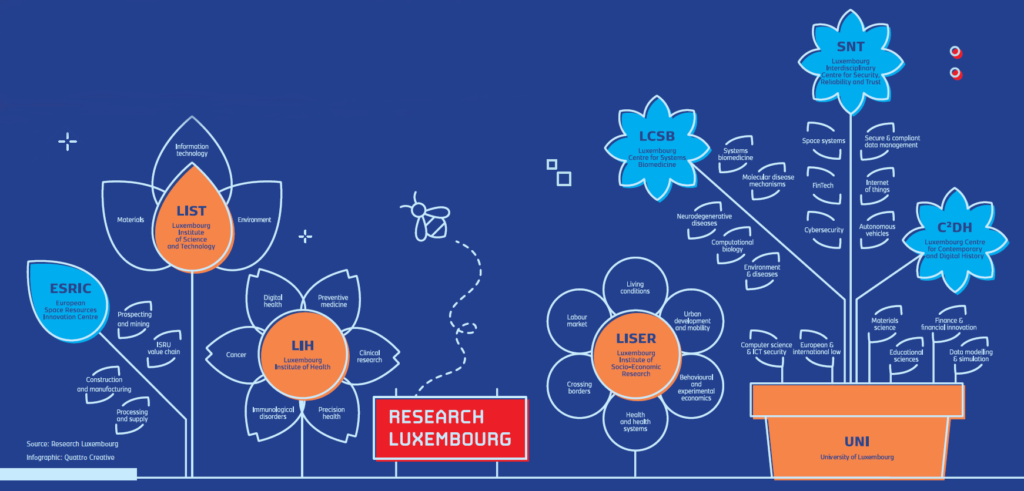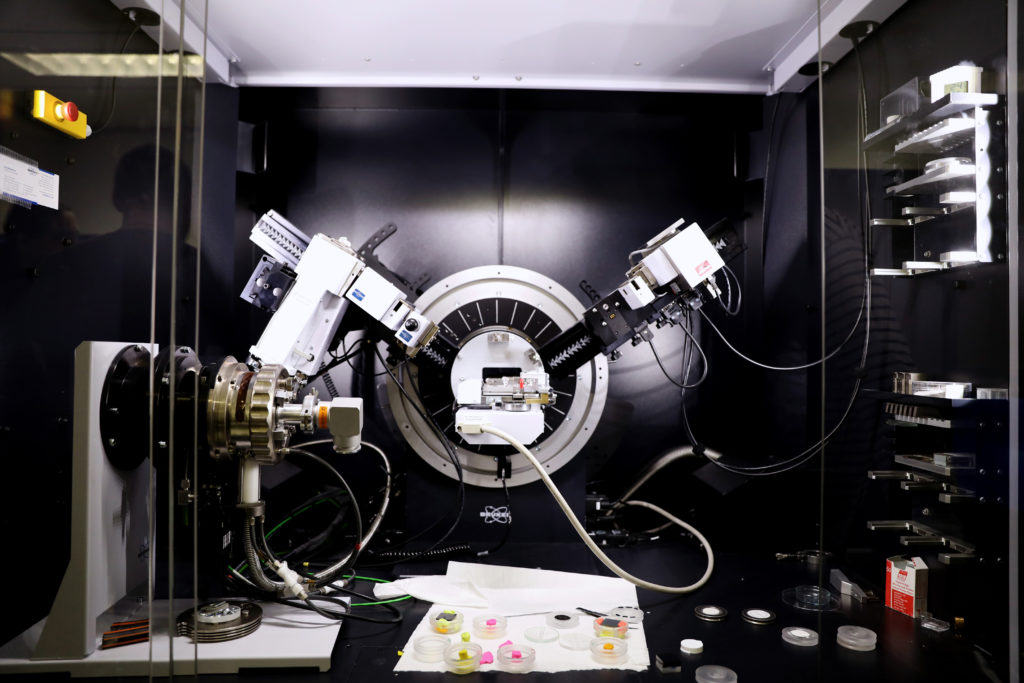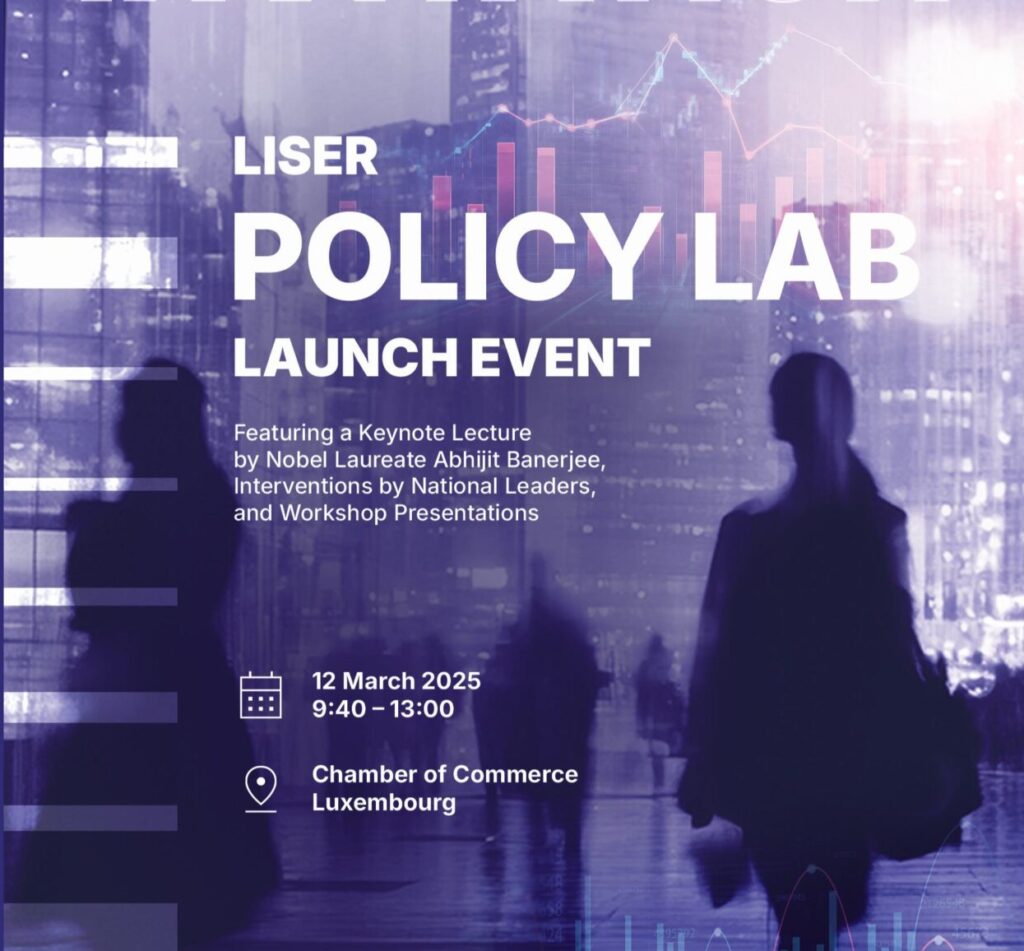Luxembourg: Fostering excellence in research & innovation
28 June 2022

Where research excellence and innovation go hand in hand
Luxembourg is creating a thriving data-driven research & innovation sector with one ambition: provide the best conditions in which talents can foster excellence to shape a sustainable future.
This attractive and fertile landscape – sustained by robust state funding and public support – makes it the right place to pursue research and innovate.
In a few decades, Luxembourg has built a competitive research ecosystem with a strong orientation towards innovation. The government promotes science as a way to rise to economic and societal challenges, and the Luxembourg National Research Fund (FNR) provides funding that stimulates research excellence and builds bridges with the private sector.
Addressing real-life challenges
Research is now deeply rooted in Luxembourg society. “There are a number of disruptive challenges ahead of us – digitalisation, climate change and perhaps the next worldwide pandemic, for example – that can only be solved by research and innovation,” says Romain Martin, Senior Advisor at the Ministry of Higher Education and Research. Hence the government’s determination to invest in research that can contribute to providing answers.
Today, the main mission of the Luxembourg Institute of Science and Technology (LIST) is to push the frontiers in research for high-impact innovation. “As a research and technology organisation, LIST works on projects with substantial added value for the market, on short and long-term research and innovation requests,” says CEO Thomas Kallstenius.
We strive to understand our partners’ needs and offer them the flexibility and agility needed to optimise their time to market. We work with private companies in a ‘push and pull’ dynamic: we pro-actively propose innovations that will contribute to our industrial partners’ technological roadmap and, at the same time, adapt our research agenda to their innovation needs.
Thomas Kallstenius, CEO of the Luxembourg Institute of Science and Technology (LIST)
The Luxembourg Institute of Health (LIH) is invested in becoming a leading reference in Europe for the transformation of scientific excellence into meaningful benefits for patients, and the Luxembourg Institute of Socio-Economic Research (LISER) specialises in the analysis of societal changes. “The institutes mostly work on quite high technology readiness levels, while the university’s research covers a wider span,” Dr Martin explains.
Recognised research excellence
The decades of quite considerable investments are paying off. The University of Luxembourg is internationally renowned for its research in computer sciences, and ranks 93rd out of 891 universities in the world by the 2022 Times Higher Education (THE) World University Ranking. !”This is quite a remarkable achievement for a small country,” Dr Martin comments. “In this area, and more specifically in cybersecurity, we really have outstanding skills. They feed into other important research areas such as data analytics, finance and fintech, and health technologies.”
Health and healthtech represent another of the country’s research strengths. “The Luxembourg Centre of Systems Biomedicine, which is part of the university, is very strong in terms of scientific progress and success, and LIH is top ranked internationally as a non-university scientific institute.” Space-related research is yet another one, where Luxembourg has research expertise in fields such as telecommunications, networking and Earth observation as well as space resources.

Funding research priorities
The national research and innovation strategy focuses on four interdisciplinary research areas:
- industrial and service transformation;
- personalised healthcare;
- 21st century education;
- sustainable and responsible development.
“These areas reflect both current strengths and future priorities,” comments Marc Schiltz, Secretary General and CEO of the Luxembourg National Research Fund (FNR) and exemplifies Luxembourg’s expertise in certain aspects of educational sciences as well as its solid track record in material sciences. FNR is Luxembourg’s main funder of public research activities, and champions sustainable and high-quality research in areas linked to the national strategy.
“We have cofunded a number of projects together with the Luxembourg Space Agency, for instance, and have just awarded one of our most prestigious grants, PEARL, to the new scientific director of the European Space Resources Innovation Centre (ESRIC). We have also supported several fintech research projects carried out by the university’s Interdisciplinary Centre for Security, Reliability and Trust (SnT), of which many are joint projects conducted with companies. We always prioritise projects with local industry partners.”
Research cooperation with industry
Since joining FNR in 2011, Dr Schiltz has seen the growing international recognition of the quality of Luxembourg research as well as increasing interaction between public research organisations and the private sector.
We have set up dedicated funding instruments to support research partnerships in the form of collaborative research projects and industrial fellowships. We now support some large-scale projects, such as a multi-annual joint project between tyre producer Goodyear and LIST which is very successful.
Marc Schiltz, CEO of the Luxembourg National Research Fund (FNR)
Both the university and LIST have ready-made framework contracts for different types of research cooperation with companies.”Today, there is a wide-spread consciousness that excellent research can generate both scientific publications and results that can be used by private partners,” confirms Dr Martin. “On the company side, people are aware that innovation is a key driver for long-term competitiveness. They often ask how they can reach out to the science centres and find the talents and research and innovation skills that could help them.”
This does not only concern large groups with their own R&D departments. “Small-scale projects involving a single PhD student can be an excellent way for companies to start building their own innovation skills and ensure knowledge transfer. They often end up hiring the person who worked on the project as their first in-house specialist,” Dr Martin points out.
For Dr Schiltz, Luxembourg’s size and agility is an advantage when it comes to matching research and industry needs. “We can easily speak to the relevant stakeholders, try out new mechanisms and see together what makes most sense. We have a freedom to launch things quickly and improve them on the way that I think is quite unique. In many other countries, this would not be possible.”
For further information
Download Research Luxembourg’s brochure “10 reasons to consider Research Luxembourg”.
Find other Resources in our dedicated section.
source: Crossroads Magazine – Luxembourg Trade & Invest












